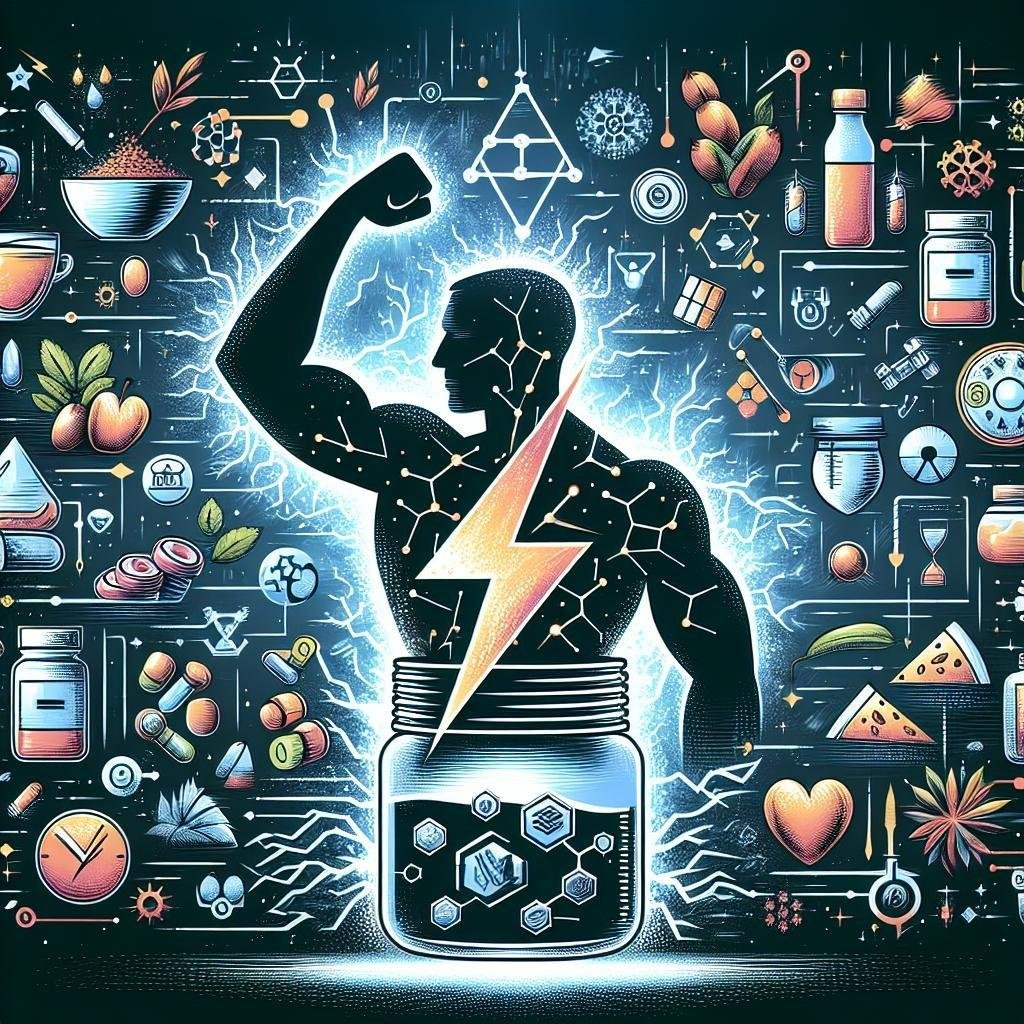In the realm of modern nutrition, few dietary approaches have garnered as much attention as the ketogenic diet. Often hailed for its potential to promote weight loss and enhance energy levels, keto encourages the body to shift from burning carbohydrates to utilizing fats as its primary fuel source. However, as enthusiasts embark on this transformative journey, they may encounter a lesser-known but equally crucial aspect of the diet: electrolytes. Essential minerals that help regulate nerve function, muscle contraction, and hydration, electrolytes can become imbalanced, particularly during the initial phases of a ketogenic lifestyle. In this article, we will explore the often-overlooked importance of electrolyte supplements on a keto diet, discussing how they can support your health and well-being as you navigate this unique nutritional landscape. Join us as we uncover the vital role of these powerful nutrients and how they can help ensure your keto experience is both effective and sustainable.
Understanding Electrolytes and Their Role in Keto
When embarking on a ketogenic journey, understanding the significance of electrolytes is crucial for maintaining balance and enhancing overall well-being. Electrolytes, such as sodium, potassium, magnesium, and calcium, play a vital role in a variety of bodily functions including muscle contraction, hydration, and nerve signaling. On a keto diet, the body tends to excrete more electrolytes due to reduced insulin levels and increased water loss, which can lead to deficiencies. This is why supplementing electrolytes can be beneficial for those adhering to this low-carb lifestyle.
Incorporating the right balance of these minerals into your diet can alleviate symptoms commonly referred to as the “keto flu,” which include fatigue, headache, and muscle cramps. To ensure you’re getting enough electrolytes on a keto diet, consider focusing on the following:
- Sodium: Increase salt intake through bone broth or sprinkled on food.
- Potassium: Include avocados, leafy greens, and nuts in your meals.
- Magnesium: Opt for dark chocolate, pumpkin seeds, and supplements if necessary.
Here’s a brief overview of key electrolytes and their sources:
| Electrolyte | Recommended Sources |
|---|---|
| Sodium | Sea salt, olives, pickles |
| Potassium | Avocados, spinach, coconut water |
| Magnesium | Almonds, spinach, dark chocolate |

Identifying Deficiencies: Common Signs and Symptoms
On a ketogenic diet, the shift in your body’s metabolism can lead to various signs indicating potential electrolyte deficiencies. Recognizing these symptoms is essential for maintaining optimal health while enjoying the benefits of ketosis. Common indicators include:
- Muscle cramps: Sudden and painful contractions that may disrupt your daily activities.
- Fatigue: Persistent tiredness that doesn’t improve with rest and may hinder your routine.
- Headaches: Frequent aches that could indicate dehydration or lack of essential minerals.
- Dizziness: Lightheadedness or periods of disorientation, particularly upon standing.
Delving further into the metabolic effects, electrolyte imbalances can also manifest through fluctuating mood and cognitive function. It’s essential to monitor these behavioral changes, as they could impact your overall well-being. Keep an eye out for:
- Cravings: Unusual hunger pangs that may signal a need for potassium or magnesium.
- Sleep disturbances: Difficulty in falling asleep or staying asleep, potentially linked to sodium depletion.
- Rapid heartbeat: An unexpected increase in heart rate, often a sign of a magnesium shortfall.

Choosing the Right Electrolyte Supplement for Your Needs
When navigating the world of electrolyte supplements, it’s essential to consider your individual needs, as different forms and types can greatly impact your overall well-being. Start by evaluating your level of physical activity, body weight, and the specific deficiencies you aim to address. Some key factors to look for include:
- Sodium: Crucial for maintaining fluid balance.
- Potassium: Important for muscle function and nerve signaling.
- Magnesium: Aiding in muscle recovery and reducing cramps.
- Calcium: Supporting bone health and muscle contractions.
Another important consideration is the form of supplement that suits your lifestyle. There are options available in powder, tablet, liquid, and even gummy formats. Assess your preference for convenience versus dosage accuracy. Additionally, reviewing the ingredient list ensures you choose a product without unnecessary additives or sugars, especially if you’re adhering to a strict ketogenic diet. You may also find it helpful to consult with a health professional who can recommend specific brands or formulations based on your dietary habits and health goals.

Practical Tips for Incorporating Electrolytes into Your Keto Lifestyle
Incorporating electrolytes into your keto lifestyle is essential to maintain balance and energy while adapting to a low-carb diet. One highly effective approach is to regularly include electrolyte-rich foods in your meals. Consider adding avocado, spinach, and nuts to your diet, as they are excellent sources of potassium, magnesium, and sodium. Additionally, opting for broth-based soups or bone broth can offer both hydration and a significant electrolytic boost, ensuring you stay replenished and energized throughout the day.
Another practical tip is to explore various electrolyte supplements to find the right fit for your routine. When shopping for supplements, look for products that contain magnesium, potassium, and sodium, which are vital in preventing symptoms of the “keto flu.” There are a variety of formats available, including powders, tablets, and drink mixes. Be sure to follow the recommended dosages and consult with a health professional if you have any concerns about your electrolyte intake. Here’s a quick reference table that highlights some popular electrolyte-rich foods and their benefits:
| Food | Key Electrolyte | Benefit |
|---|---|---|
| Avocado | Potassium | Heart health & muscle function |
| Spinach | Magnesium | Energy production & stress relief |
| Salted Nuts | Sodium | Hydration & nerve function |
| Bone Broth | Collagen/Sodium | Joint health & electrolytic balance |
The Way Forward
as you navigate the unique landscape of a keto diet, the importance of incorporating electrolyte supplements cannot be overstated. These tiny but mighty minerals play a crucial role in maintaining your body’s balance and optimizing your journey towards nutritional ketosis. Whether you’re seeking to enhance your energy levels, combat fatigue, or support overall wellness, the right electrolyte support can make all the difference. By being mindful of your body’s needs and staying proactive about hydration and mineral intake, you can ensure that your keto experience is not just effective, but also enjoyable. Remember, a well-rounded approach to your diet will help you not only reach your goals but also thrive along the way. Here’s to your health—cheers to balance, vitality, and the transformative power of electrolytes on your keto journey!

